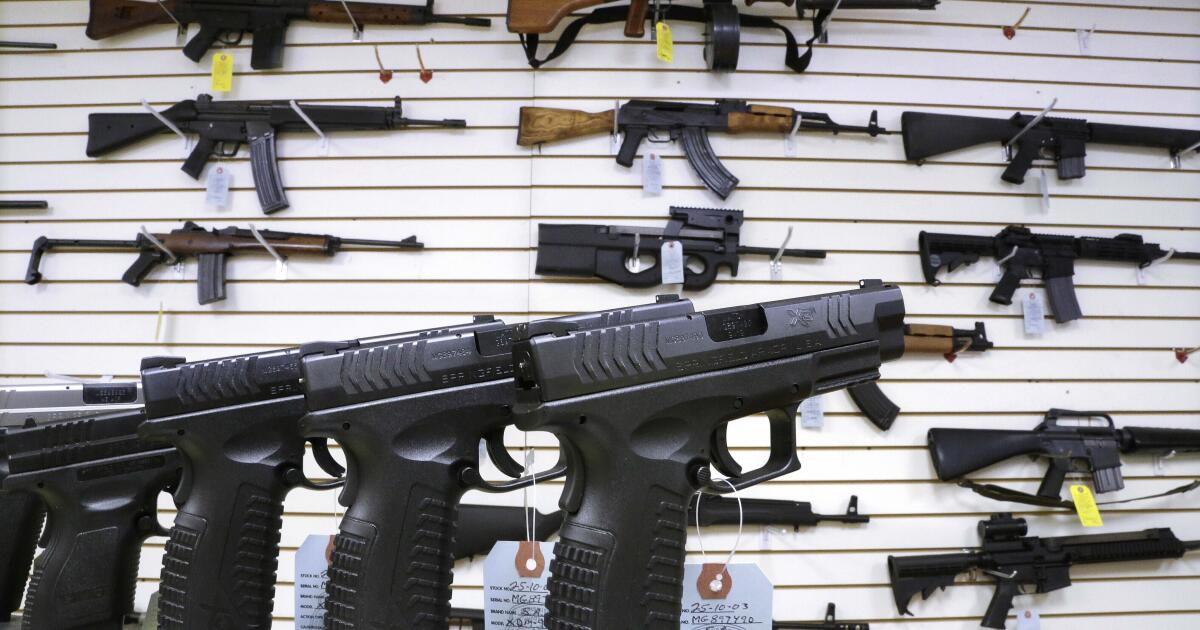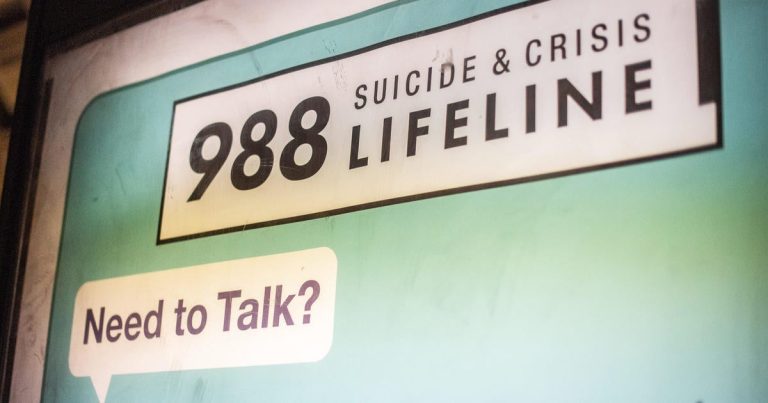
A federal judge in San Diego who has repeatedly struck down multiple California firearms laws issued a new ruling Thursday that again declared the state’s ban on assault weapons unconstitutional.
U.S. District Judge Roger Benitez, who previously made an identical ruling in the same case, issued a 10-day stay of his decision, giving California Attorney General Rob Bonta time to appeal the judge’s ruling to the 9th U.S. Circuit Court of Appeals. That means the current laws will remain in place during the stay.
Within hours, Bonta’s office filed a notice that it would appeal and announced it would seek a stay on the ruling throughout the appeals process.
“Weapons of war have no place on California’s streets,” Bonta said in a statement. “This has been state law in California for decades, and we will continue to fight for our authority to keep our citizens safe from firearms that cause mass casualties. In the meantime, assault weapons remain unlawful for purchase, transfer, or possession in California.”
Thursday’s decision stemmed from a 2019 lawsuit against California’s Assault Weapons Control Act, a suite of regulations first passed in 1989, with multiple updates since then. The law defines assault weapons as any semiautomatic rifle or pistol that uses a detachable magazine of ammunition. Guns that have magazines holding more than 10 rounds of ammunition, often referred to as large-capacity magazines, are also included, as are weapons with some special features like a folding stock.
In 2021, Benitez ruled in the same case that those regulations were unconstitutional. The attorney general appealed the ruling. But last year, before the 9th Circuit ruled on the appeal, the U.S. Supreme Court issued a ruling in a New York gun case that set a new standard for how judges should analyze firearm restrictions. The 9th Circuit vacated Benitez’s previous ruling and sent the case back to him to reconsider using the new standard.
The judge reached the same conclusion Thursday in a 79-page ruling.
“The State of California posits that its ‘assault weapon’ ban, the law challenged here, promotes an important public interest of disarming some mass shooters even though it makes criminals of law-abiding residents who insist on acquiring these firearms for self-defense,” Benitez wrote. “Nevertheless, more than that is required to uphold a ban.”
Thursday’s ruling contained many of the same hallmarks of past Second Amendment decisions by Benitez, a George W. Bush appointee known as “St. Benitez” among gun enthusiasts because of his firearms-friendly rulings.
For instance, Benitez compared four high-profile mass shootings that killed 113 people to three instances in which homeowners used AR-15 rifles to defend themselves from intruders. He said the public doesn’t hear as much about the incidents of self-defense as the mass killings, and wrote that the hypothetical lives saved by those using an AR-15 for self-defense are as important as those killed in shootings at schools and other public places.
“This Court understands the unquestionable tragedy caused by lawless individuals using modern semi-automatic guns or any gun to injure or kill innocent men, women, or children. Their lives are important. But are their lives any more important than Jane Doe’s or the lives of her family?” he wrote.
In his first ruling in the case, Benitez opened his order by likening the AR-15 rifle to a Swiss Army Knife. He described it as the “perfect combination of home defense weapon and homeland defense equipment. Good for both home and battle.”
This time he started his order comparing assault weapons to another bladed weapon.
“Like the Bowie Knife which was commonly carried by citizens and soldiers in the 1800s, ‘assault weapons’ are dangerous, but useful,” Benitez wrote in the first line of Thursday’s decision. “But unlike the Bowie Knife, the United States Supreme Court has said, ‘[t]here is a long tradition of widespread lawful gun ownership by private individuals in this country.’”
The judge’s reference to tradition is important. After the Supreme Court’s ruling last year in New York State Rifle & Pistol Association, Inc. v. Bruen, judges must now rule on Second Amendment cases using analysis that is “rooted in the Second Amendment’s text, as informed by history,” and must judge if “the regulation is consistent with the nation’s historical tradition of firearm regulation.”
Benitez ruled Thursday that the government failed to provide any historically similar laws to the ones banning assault weapons.
“Among the American tradition of firearm ownership, there is nothing like California’s prohibition on rifles, shotguns, and handguns based on their looks or attributes,” the judge wrote. “Here, the ‘assault weapon’ prohibition has no historical pedigree and it is extreme.”
Second Amendment groups were quick to celebrate the ruling, while gun-violence prevention groups criticized the decision.
“Today’s opinion is yet another thorough demonstration of the unconstitutional nature of these types of bans on constitutionally protected arms,” Cody Wisniewski, legal counsel for Firearms Policy Coalition, one of the plaintiffs in the suit, said in a statement. “We’re elated that the Court has recognized that California’s ban flies directly in the face of peaceable individuals’ constitutionally protected right to keep and bear arms, and we look forward to continuing to demonstrate that point in courtrooms in California and across the country.”
The group San Diego County Gun Owners, another of the plaintiffs in the suit, sent a fundraising email celebrating the decision, but acknowledging that with an appeal looming, “this fight isn’t over.”
Billy Clark, senior litigation attorney and Second Amendment issues manager at Giffords Law Center, said Benitez “once again showed a callous disregard to the gun violence epidemic the United States faces and the thousands of lives lost to gun violence every year … Courts across the country have upheld restrictions on assault weapons and large-capacity magazines, and we are confident this ruling will be overturned.”
Eric Tirschwell, executive director of Everytown Law, called Benitez an “outlier” and described his ruling as “extreme and reckless.” Tirschwell said the 9th Circuit “has reversed a dangerous Second Amendment ruling from this judge before and we are confident that it will do so again.”
Benitez wrote in his ruling that Thursday’s decision would “sound repetitive” to one he made last month, in which he struck down California’s ban on large-capacity magazines. Bonta quickly appealed that decision, too, and a majority of the judges on the 9th Circuit agreed to stay the ruling and hear the appeal “en banc,” or before an 11-judge panel.







